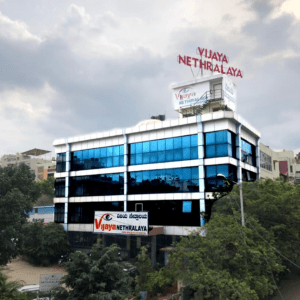In today’s fast-paced world, having clear vision is essential for a high-quality life. For many individuals, the idea of ditching their glasses or contact lenses is enticing, and laser eye surgery presents an attractive solution. However, before taking the plunge, it’s crucial to understand the laser eye surgery cost and what factors influence it. In this comprehensive guide, we’ll walk you through the intricacies of laser eye surgery costs, helping you make an informed decision.
Understanding Laser Eye Surgery & laser eye surgery cost:
Laser eye surgery, also known as refractive surgery, is a medical procedure designed to correct vision problems. It involves reshaping the cornea, the front surface of the eye, using a laser beam. By doing so, it can correct issues like nearsightedness, farsightedness, and astigmatism.

Factors Affecting the laser eye surgery cost:
The cost of laser eye surgery can vary significantly from person to person. Several key factors influence the overall price:
Type of Surgery:
There are different types of laser eye surgeries, including LASIK, PRK, and SMILE. Each procedure has its own cost, with LASIK often being the most expensive due to its popularity and advanced technology.
Surgeon’s Expertise:
An experienced surgeon with a proven track record may charge higher fees for their services. However, their expertise can be a valuable investment in ensuring a successful outcome.
Geographic Location:
Where you live can greatly impact the cost of laser eye surgery. Procedures tend to be more expensive in major metropolitan areas compared to smaller towns.
Pre-Operative Evaluations:
Before surgery, you’ll undergo a series of evaluations to determine your eligibility. These evaluations may incur additional costs, so it’s essential to factor them into your budget.
Average Cost of laser eye surgery cost:
On average, the cost of laser eye surgery in the United States falls within the range of $2,000 to $3,000 per eye. However, this figure can fluctuate based on the factors mentioned earlier.
Financial Considerations:
When planning for laser eye surgery, it’s crucial to consider your financial situation. Creating a budget and exploring financing options can help you manage the cost effectively.
Insurance Coverage:
In most cases, health insurance does not cover the cost of laser eye surgery since it is considered an elective procedure. However, some insurance plans may offer discounts or coverage for specific refractive surgery procedures.
Is It Worth the Investment?
While the upfront cost of laser eye surgery may seem significant, it’s essential to view it as an investment in your long-term quality of life. Consider the money saved on glasses, contact lenses, and solution over the years.
Choosing the Right Surgeon:
Selecting a qualified and experienced surgeon is paramount. Research potential surgeons, read reviews, and schedule consultations to ensure you feel comfortable and confident with your choice.
Preparing for Surgery:
Before the big day, your surgeon will provide specific instructions on how to prepare for the surgery. Following these guidelines is essential for a successful outcome.
The Surgical Procedure:
During the surgery, you’ll be awake but numbed with local anesthesia. The procedure is quick, typically lasting around 15 minutes per eye, and involves minimal discomfort.
Recovery and Aftercare:
Recovery is generally swift, with most patients experiencing improved vision within 24 to 48 hours. However, you’ll need to follow post-operative instructions carefully to ensure optimal healing.
Potential Risks and Complications:
While laser eye surgery is generally safe, it’s not without risks. Understanding these potential complications and discussing them with your surgeon is crucial.
Alternative Financing Options:
If the upfront cost is a concern, many clinics offer financing options, including payment plans and credit programs, to make the procedure more accessible.
Real Patient Experiences:
Hearing from individuals who have undergone laser eye surgery can provide valuable insights into the process and its life-changing benefits.
Conclusion:
Investing in laser eye surgery can be a life-altering decision, granting you the gift of clear vision and freedom from glasses or contacts. While the cost may initially seem daunting, the long-term benefits are undeniable. Remember, it’s not just an expense; it’s an investment in your quality of life.
FAQs about laser eye surgery cost:
- Is laser eye surgery painful?
- Laser eye surgery is typically not painful. You may experience some discomfort, but it is manageable and short-lived.
- How long does the recovery process take?
- Most patients experience improved vision within 24 to 48 hours, with a full recovery within a few weeks.
- Can I finance the cost of laser eye surgery?
- Yes, many clinics offer financing options to make the procedure more affordable.
- Are there age restrictions for laser eye surgery?
- While there is no strict age limit, candidates should be at least 18 years old and have stable vision for at least a year.
- What are the potential side effects of laser eye surgery?
- Potential side effects include dry eyes, glare, halos, and night vision issues, but they are usually temporary and manageable.











